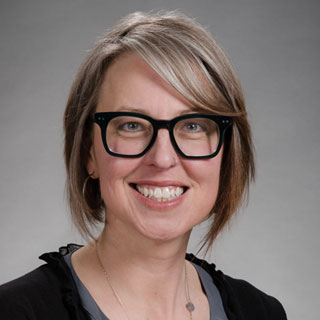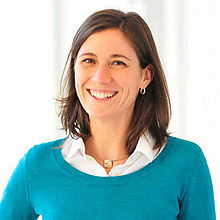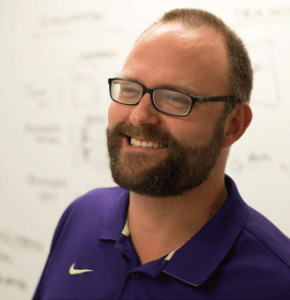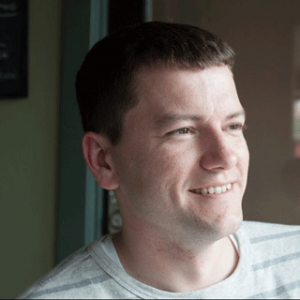My focus is on advancing participation and health together with people with disabilities and their families by exploring the intersections between mobility, disability, and technology in a variety of personal and environmental contexts. My research centers on the design and implementation of mobility assistive technology, including how perceptions of disability and identity emerge and evolve through technology use.
Affiliations
Assistant Professor, UW Medicine Rehabilitation Medicine: Physical Therapy
Core Faculty, Disability Studies
Affiliate Faculty, Center for Technology and Disability Studies
Director, IMPACT Collaboratory
Research highlights
Rethinking Mobility Technology for Children with Disabilities
Early in her research career, Heather began challenging her colleagues in rehabilitation medicine and rehabilitation engineering to envision a paradigm shift in how pediatric mobility technology is conceptualized, designed, and implemented for children with disabilities and their families. Drawing on her background in Disability Studies, which examines how the construct of disability is understood in society across multiple contexts, this work underscores the barriers and facilitators of participation for children who use mobility technology. It provides a roadmap for clinicians, engineers, and caregivers to advocate for policy change, improve pediatric mobility technology design, and understand how historical perceptions of disability and assistive technology often serve to perpetuate exclusion and discrimination of children despite legislation protecting individuals’ rights to mobility and technology.
Go Baby Go
A multidisciplinary, grassroots movement of research, education, and community outreach that involves making safety and accessibility modifications to off-the-shelf, battery powered toy ride-on cars so they are accessible to young children with disabilities as an early form of self-initiated mobility and social exploration. Heather has started two Go Baby Go Chapters in Chicago, IL and Seattle, WA, has modified over 500 cars at no cost for children with disabilities and their families as well as rehabilitation clinics across the country, and has taught over 20 workshops and continuing education courses about multidisciplinary collaboration and innovation to reduce mobility disparities in children with disabilities. Heather continues to do Go Baby Go research and outreach, and together with her Seattle chapter co-founder and fellow UW colleague, she is currently re-launching the chapter as a UW Department of Rehabilitation Medicine supported program.
HuskyADAPT (Accessible Design and Play Technology)
As a postdoctoral researcher in the UW Department of Mechanical Engineering, and together with center leaders Anat Caspi and Kat Steele and other faculty and graduate students, Heather helped to found HuskyADAPT in 2017. HuskyADAPT is focused on accessible and inclusive design, and supports formal coursework, informal design teams in partnership with local community organizations, and outreach opportunities for UW students and faculty across campus, including K-12 STEAM education modules for underrepresented minority students. Current HuskyADAPT partners include:
- Outdoors for All
- The Experience Fitness Project
- Special Olympics Seattle
- Seattle Public Libraries
- Microsoft Accessibility
- The UW Experimental Education Unit (early education program for preschool students with diverse abilities)
- adult and pediatric rehabilitation facilities
- K-12 education programs.
Related news
- Off to the Park: A Geospatial Investigation of Adapted Ride-on Car Usage
- CREATE + I-LABS: focus on access, mobility, and the brain
- Heather Feldner 'wrote the book' on power mobility device for babies
- Feldner and Harniss receive research poster award for work on allyship training in rehabilitation education
- Feldner and Steele's 'Reimagining Mobility' series featured in The Daily
- Go Baby Go Car Adaptation Workshop
- $1M NIDILRR award for leadership training program
- Feldner team receives grant to study pediatric mobility technology
- New CREATE Conversation Hub: Reimagining Mobility
- AccessComputing shares UW CREATE's launch and work toward accessibility




